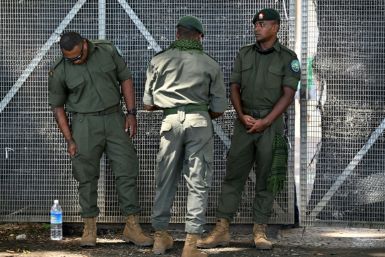Climate Change Predictions: Tropical Countries to Get Hotter and Wetter

Climate change predictions say that tropical countries like Singapore will turn hotter and wetter. In this day, storms are intense and frequent and temperature seems to be rising by three to four degrees Celsius a day, hence creating extreme weather.
Richard Corlett, an ecologist with the Xishuangbanna Tropical Botanical Garden at the Chinese Academy of Sciences in Yunnan, wrote in the State of Tropics report put together by James Cook University, Australia, that "Equatorial Singapore will not just be warmer than it is now, but warmer than anywhere on earth with year-round rainfall." The report was put together by 11 international universities, including Nanyang Technological University and National University of Singapore.
Richard Davis, Media and Communications head at James Cook University, said that the report's focus on the tropics reflects how this is a critical zone of population and economic growth, with an impact on the rest of the world.
The Centre for Climate Research, Singapore, is developing better climate models.
The co-director of Nanyang Technological University's Complexity Institute, Professor Stephen Lansing, said, "Singapore has the research expertise to model how tropical cities might behave as they grow, or to work out how to cut emissions of methane, a powerful greenhouse gas, from rice fields in Bali, for example."
Climate change will have consequences on people and ecosystems as well. Water stress is already affecting half the people in the tropical areas and the climate change could put more at risk.
Aung San Suu Kyi, Nobel Peace Laureate, who launched the State of Tropics report in Myanmar, said that she'd like the report to be able to contribute to a more caring world for all and that there is so much that one can learn from the report to make better carers -- to care for the environment, to care for one another and to care for those who are different from us.
A look into the State of Tropics Report
- By 2050, the tropics would shelter half the world's residents and 67 per cent of its children.
- Their lives could be in grave danger as the region is the most vulnerable to climate-change risks.
- Ninety-nine per cent of its total population live in developing countries, with lower resilience to any extreme weather events.






